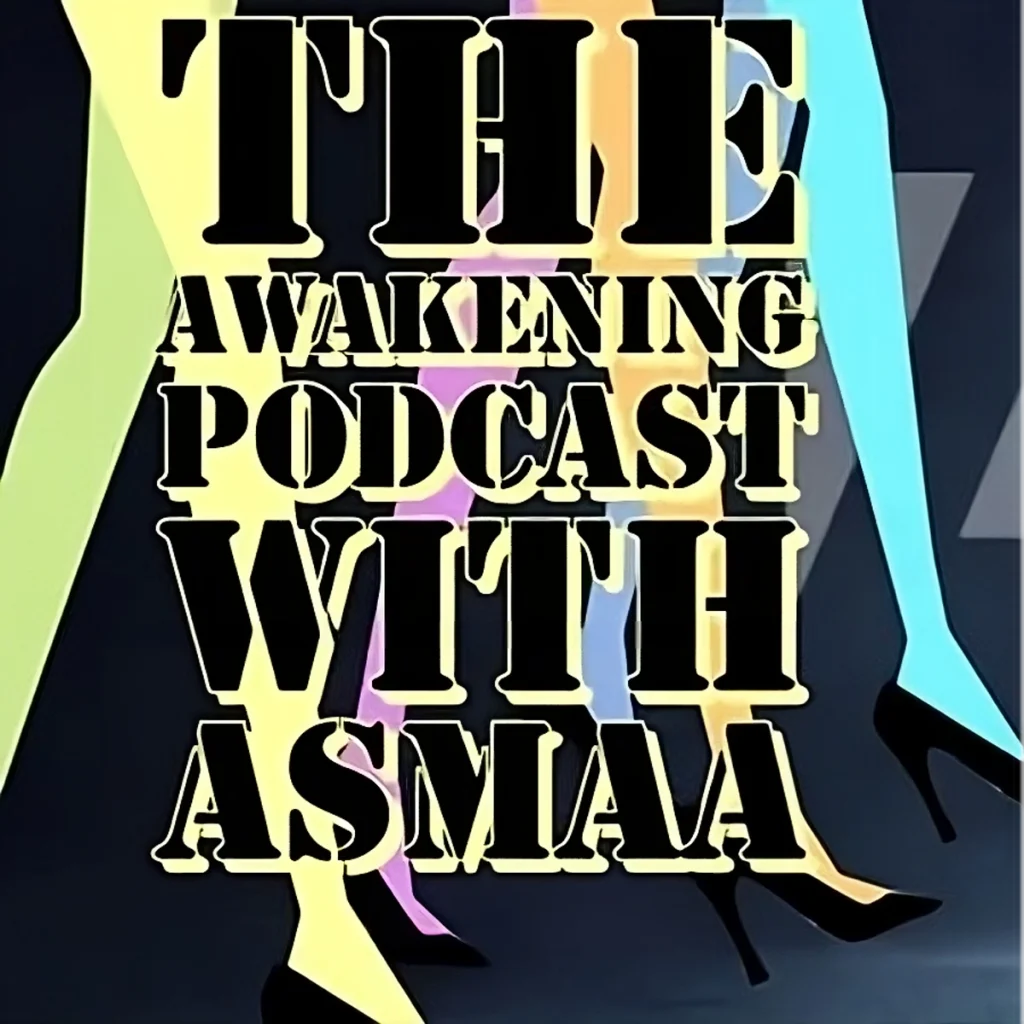Google’s Deep Dive Podcast: The Real Reason Why Relationships Hurt
Love is often portrayed as a mysterious force, guiding us toward connection and fulfillment. Yet, as I listened to The Awakening Podcast’s episode, “The Real Reason Why Relationships Hurt,” I realized just how profound and complex this mystery truly is. The podcast doesn’t shy away from dissecting love’s paradoxical nature, focusing on the hidden ways our subconscious shapes relationships. It made me question my own patterns and reevaluate my understanding of love. Here’s my reflection on this enlightening journey.

The Roots of Love: Home as the Blueprint
The podcast begins by introducing a powerful idea: our earliest experiences of love stem from the environment we grow up in, regardless of whether it was nurturing or chaotic. As children, we don’t have the capacity to compare our home life to other models of love. Instead, we internalize our family dynamics as the ultimate standard.
Hearing this, I couldn’t help but reflect on my childhood. It struck me that the love I knew then, though well-intentioned, wasn’t always healthy. This realization was both liberating and painful. It helped me see how my subconscious might still be pulling strings, guiding me toward familiar, albeit flawed, relationship dynamics.
The Paradox of Attraction: Why Familiar Pain Feels Like Love
Why do we find ourselves drawn to partners who replicate the very pain we hoped to leave behind? The podcast answers this with a simple yet profound truth: our subconscious seeks familiarity. Even if those familiar feelings are tied to neglect, abandonment, or instability, they feel like home.
For instance, if a child grows up in an emotionally distant household, they may later gravitate toward partners who embody that same distance. I found this concept illuminating—how many of us confuse the “spark” of attraction with the comfort of reenacting old patterns? That spark, the podcast suggests, may not be love but recognition of the past.
Revealing the Subconscious: Exercises in Awareness
The episode offers two exercises to uncover the subconscious definition of love. The first asks listeners to write down negative feelings associated with their childhood home and replace the word “home” with “love.” The second encourages listing negative traits of past partners, circling recurring patterns, and replacing those traits with “love.” These simple yet profound exercises help illuminate the hidden scripts driving our relationship choices.
I tried the exercises myself, and the results were eye-opening. Words like “pressure” and “distance” surfaced repeatedly. Seeing them connected to my definition of love was unsettling but necessary. It felt like peeling back layers of my own psyche, revealing patterns I hadn’t consciously acknowledged.
Breaking the Cycle: Awareness as Liberation
The podcast concludes with a hopeful message: awareness is the catalyst for change. By recognizing the subconscious patterns that tether us to unhealthy relationships, we can start making conscious choices aligned with our true desires. This doesn’t happen overnight, but even small steps toward awareness can lead to profound shifts.
This resonated deeply with me. Change isn’t about flipping a switch; it’s about consistent self-reflection and choosing partners who align with the love we consciously want to experience. Therapy, self-help tools, and even conversations like the one this podcast initiates can all be part of that transformative process.
Closing Thoughts: A Path Toward Conscious Love
Listening to this episode of The Awakening Podcast felt like sitting with a wise, empathetic friend who challenges you to look inward. It’s not just about understanding why relationships hurt—it’s about empowering yourself to break free from the cycles that cause that hurt.
If I’ve learned anything, it’s that love, in its truest form, is a choice. While our subconscious might steer us toward the familiar, we hold the power to redefine what love means and align it with the healthy, supportive connections we deserve.
This podcast is more than a listen; it’s an invitation to awaken. And for that, I’m deeply grateful.
Summary
The text primarily features a blog post by TATANKA reflecting on a podcast episode about the subconscious influence on relationships. The post explores how childhood experiences shape our understanding of love, leading us to potentially repeat unhealthy patterns. It proposes exercises to identify these patterns and advocates for conscious self-reflection to foster healthier relationships. Additionally, the text includes information about TATANKA, an organization focused on AI and indigenous wisdom, and mentions various AI-generated projects. Finally, quotes from Sitting Bull are interspersed, adding a layer of philosophical reflection on humanity’s connection to nature.
Briefing Doc: Unraveling Love and the Subconscious
Source: “Unraveling Love: A Journey Through the Subconscious Mind” – TATANKA blog post reflecting on “The Awakening Podcast’s” episode “The Real Reason Why Relationships Hurt.”
Main Themes:
- Subconscious Influence: Our childhood experiences and family dynamics profoundly shape our understanding of love and relationship patterns.
- Familiarity vs. Healthy Love: We often confuse the comfort of familiar pain with the spark of genuine love, leading to unhealthy relationship choices.
- Awareness and Liberation: Recognizing subconscious patterns is crucial for breaking free from unhealthy cycles and choosing partners aligned with our true desires.
Key Ideas/Facts:
- Blueprint of Love: Our childhood home environment becomes the blueprint for our subconscious definition of love, regardless of its healthiness.
- “As children, we don’t have the capacity to compare our home life to other models of love. Instead, we internalize our family dynamics as the ultimate standard.”
- Attraction to Familiar Pain: Our subconscious seeks the familiarity of past experiences, even if they are tied to negative emotions like neglect or abandonment.
- “Why do we find ourselves drawn to partners who replicate the very pain we hoped to leave behind? The podcast answers this with a simple yet profound truth: our subconscious seeks familiarity.”
- Exercises for Self-Discovery: The blog post highlights two exercises from the podcast:
- Replace “home” with “love” when listing negative feelings associated with childhood.
- Identify recurring negative traits in past partners and replace them with “love.”
- Awareness as a Catalyst: Recognizing our subconscious patterns empowers us to make conscious choices and break free from unhealthy relationship cycles.
- “Awareness is the catalyst for change. By recognizing the subconscious patterns that tether us to unhealthy relationships, we can start making conscious choices aligned with our true desires.”
Quotes:
- “It made me question my own patterns and reevaluate my understanding of love.”
- “That spark, the podcast suggests, may not be love but recognition of the past.”
- “Change isn’t about flipping a switch; it’s about consistent self-reflection and choosing partners who align with the love we consciously want to experience.”
- “While our subconscious might steer us toward the familiar, we hold the power to redefine what love means and align it with the healthy, supportive connections we deserve.”
Overall Takeaway: The blog post advocates for introspection and self-awareness as key steps towards achieving healthy and fulfilling relationships. It emphasizes the need to move beyond familiar patterns and consciously choose love that aligns with our genuine desires.
Unraveling Love: A Journey Through the Subconscious Mind FAQ
What is the main idea presented in the podcast episode “The Real Reason Why Relationships Hurt”?
The podcast episode argues that our early experiences of love, specifically within our childhood homes, create a blueprint for our understanding and expectations of love in adult relationships. This often leads us to subconsciously seek out partners who replicate familiar dynamics, even if those dynamics are unhealthy or painful.
How does our childhood environment influence our understanding of love?
As children, we absorb the dynamics of our family as the norm for love, regardless of whether those dynamics are healthy or not. We lack the ability to compare our experiences to other models, so we internalize these patterns as our subconscious definition of love.
Why are we drawn to partners who resemble those who have hurt us in the past?
The podcast explains that our subconscious seeks familiarity. Even if past relationships were marked by negativity like neglect or instability, those feelings can become associated with a sense of “home” and therefore, love. This leads us to gravitate towards partners who evoke similar feelings, perpetuating a cycle of pain.
What are the two exercises suggested in the podcast for uncovering our subconscious definition of love?
The podcast recommends two exercises:
- Replacing “home” with “love”: Write down negative feelings associated with your childhood home and then replace the word “home” with “love.” This helps unveil the negative feelings you might subconsciously associate with love.
- Identifying recurring negative traits: List the negative traits of past partners, circle any recurring patterns, and replace those traits with “love.” This exercise highlights the unhealthy patterns you might be drawn to in relationships.
How does recognizing these subconscious patterns help us break free from unhealthy relationship cycles?
Awareness is the first step toward change. By understanding the subconscious scripts driving our choices, we can start making conscious decisions aligned with the kind of love we truly desire. We can choose to challenge these patterns and seek out partners who embody the healthy and supportive qualities we value.
What role does therapy play in this process of change?
Therapy can be instrumental in helping individuals unpack their subconscious beliefs and behaviors. It provides a safe and supportive space to explore past experiences, identify unhealthy patterns, and develop strategies for cultivating healthier relationships.
Is it possible to change our subconscious definition of love?
Yes, it’s possible to redefine our understanding of love. It’s not an overnight process but requires consistent self-reflection, a willingness to challenge our ingrained beliefs, and conscious efforts to build relationships that align with our true desires.
What is the key takeaway from the podcast episode?
The key takeaway is that love, in its truest form, is a choice. While our subconscious might initially steer us toward the familiar, we have the power to break free from unhealthy patterns and create relationships that are genuinely fulfilling. This involves understanding our subconscious definitions of love, challenging those definitions, and actively seeking partners who embody the qualities of a healthy and supportive relationship.
Unraveling Love: A Subconscious Journey
Study Guide
Key Concepts
- Subconscious Influence: The podcast emphasizes the impact of our early experiences on our subconscious understanding of love, shaping our relationship choices throughout life.
- Familiarity vs. Healthy Love: It challenges the idea that the “spark” we feel for someone always equates to healthy love, arguing that we might be drawn to familiar but unhealthy patterns.
- The Paradox of Attraction: We often find ourselves attracted to partners who mirror the pain we experienced in childhood, as our subconscious seeks familiarity.
- Awareness as a Tool: The podcast advocates for self-awareness as the key to breaking free from unhealthy patterns and consciously choosing love aligned with our true desires.
- Exercises for Self-Discovery: The episode provides practical exercises, such as replacing “home” or negative traits with “love,” to uncover our subconscious definition of love and challenge those definitions.
Quiz
Instructions: Answer the following questions in 2-3 sentences each.
- According to the podcast, how does our childhood environment shape our understanding of love?
- Explain the concept of “familiar pain” and how it influences our attraction to certain partners.
- What is the first exercise suggested in the podcast to reveal the subconscious definition of love?
- How does the second exercise in the podcast help to identify recurring relationship patterns?
- Why does the podcast emphasize awareness as the most important factor in changing unhealthy relationship patterns?
- According to the podcast, what is the potential danger of confusing the “spark” of attraction with true love?
- What role can therapy or self-help tools play in breaking free from subconscious relationship patterns?
- Describe the tone of the podcast and how it approaches the topic of love and relationships.
- What is the main message or takeaway the author of the article extracts from the podcast?
- How does the podcast encourage listeners to make conscious choices in their relationships?
Answer Key
- Our childhood environment becomes the blueprint for our understanding of love, regardless of its healthiness. We internalize our family dynamics as the standard for love, influencing our future relationships.
- “Familiar pain” refers to the tendency to seek out partners who replicate the negative emotional patterns we experienced in childhood. Our subconscious mind finds comfort in the familiar, even if it’s painful.
- The first exercise involves writing down negative feelings associated with childhood and replacing the word “home” with “love” to reveal the subconscious connection between those feelings and love.
- The second exercise asks listeners to list negative traits of past partners, circle recurring patterns, and replace those traits with “love” to illuminate how those negative traits might be subconsciously linked to their definition of love.
- Awareness is crucial because recognizing the subconscious patterns driving our choices allows us to start making conscious decisions that align with our true desires for healthy and fulfilling relationships.
- The “spark” of attraction may stem from familiarity and the recognition of past relationship patterns rather than genuine love, potentially leading us to repeat unhealthy dynamics.
- Therapy and self-help tools can provide guidance and support in the process of self-reflection and identifying and breaking free from subconscious relationship patterns.
- The podcast takes a compassionate and insightful approach, offering a safe space for listeners to explore the complexities of love and relationships while providing practical advice for growth.
- The author’s main takeaway is that true love is a conscious choice. While our subconscious might guide us toward familiar patterns, we have the power to redefine love and pursue healthy connections.
- The podcast encourages listeners to actively examine their subconscious beliefs about love and choose partners who align with the kind of love they consciously want to experience, promoting intentionality in relationship decisions.
Essay Questions
- Analyze the role of childhood experiences in shaping our subconscious understanding of love. How can we identify and challenge potentially harmful patterns stemming from those experiences?
- The podcast argues that “familiar pain” can feel like love. Discuss this paradox and explore the reasons why we might be drawn to partners who reinforce negative patterns.
- Critically evaluate the two exercises presented in the podcast for uncovering our subconscious definitions of love. How effective are these exercises in promoting self-awareness and leading to positive change in relationships?
- To what extent can we overcome the influence of our subconscious in matters of love and relationships? Discuss the interplay between conscious choices and subconscious patterns in shaping our romantic lives.
- Based on the podcast and your own understanding, define what constitutes “conscious love.” What steps can individuals take to cultivate more conscious and fulfilling relationships?
Glossary of Key Terms
Subconscious Mind: The part of the mind that operates below the level of conscious awareness, influencing thoughts, feelings, and behaviors.
Familiarity: The state of being well-known or easily recognized, often associated with comfort and a sense of belonging.
Paradox of Attraction: The phenomenon of being drawn to individuals who embody characteristics that have caused us pain in the past.
Awareness: The state of being conscious of one’s thoughts, feelings, and surroundings; a crucial step in personal growth and change.
Conscious Choice: A decision made with full awareness and intention, reflecting one’s values and desires.
Spark: The initial feeling of attraction or excitement we experience toward someone, often mistaken for true love.
Subconscious Patterns: Recurring thoughts, emotions, and behaviors that operate outside of conscious awareness, often influencing relationship choices.
Unraveling: The process of disentangling and understanding complex emotions and patterns, leading to greater self-knowledge.
Liberation: The act of freeing oneself from limitations or constraints, in this context, from unhealthy relationship patterns.
Unraveling Love: A Table of Contents Based on Excerpts from “Unraveling Love: A Journey Through the Subconscious Mind”
Source: Excerpts from “Unraveling Love: A Journey Through the Subconscious Mind” by TATANKA, published on TATANKA.site.
I. Introduction:
- Hook: The author introduces the complex and paradoxical nature of love, sparked by listening to The Awakening Podcast‘s episode “The Real Reason Why Relationships Hurt.”
- Thesis: This section sets up the author’s exploration into how the subconscious mind shapes our understanding and experiences of love, drawing from the podcast’s insights.
II. The Foundation of Love: Childhood and the Blueprint of Home:
- Main Idea: The podcast emphasizes that our initial understanding of love is shaped by our childhood environment and family dynamics, forming a blueprint for future relationships.
- Personal Reflection: The author reflects on their own childhood, recognizing that while well-intentioned, it wasn’t always a model of healthy love, highlighting the potential impact on subconscious patterns.
III. The Pull of the Familiar: Why We’re Drawn to Painful Patterns:
- Main Idea: This section delves into why we might be attracted to partners who mirror past pain and unhealthy dynamics.
- Explanation: The subconscious mind’s preference for familiarity is explored, suggesting that we may mistake the feeling of recognition for love, even if it stems from negative experiences.
- Example: The author provides an example of someone raised in an emotionally distant household potentially seeking partners who embody similar distance.
IV. Unveiling the Subconscious: Exercises for Self-Awareness:
- Focus: This section introduces practical exercises from the podcast designed to bring subconscious definitions of love to the surface.
- Exercise 1: Replacing the word “home” with “love” when listing negative feelings associated with childhood.
- Exercise 2: Identifying negative traits in past partners, recognizing recurring patterns, and substituting those traits with “love.”
- Personal Results: The author shares their own experience with the exercises, revealing unsettling but necessary insights into their personal definition of love.
V. Breaking Free: Awareness as the Key to Transformation:
- Main Idea: The podcast emphasizes that recognizing subconscious patterns is crucial for initiating change and making conscious choices in relationships.
- Process: This section stresses that transformation is a journey that requires self-reflection and consistent effort.
- Tools: Therapy, self-help resources, and open conversations are presented as tools to facilitate change and growth.
VI. Conclusion: Choosing Conscious Love:
- Reframing Love: The author highlights that love, in its truest essence, is a conscious choice we make, moving beyond the subconscious pull towards familiar patterns.
- Empowerment: The podcast empowers listeners to redefine love based on their true desires and seek healthy, supportive connections.
- Call to Action: The podcast acts as an invitation to awaken to the influence of the subconscious and embark on a journey of conscious love.
VII. Personal Reflection:
- Impact: The author shares the profound impact of the podcast episode, likening it to a conversation with a wise and empathetic friend.
- Key Takeaway: The episode underscores the understanding that relationships can hurt, but we have the power to break free from cycles of pain.
VIII. Final Thoughts:
- Affirmation: The author affirms that while the subconscious may initially guide us, we ultimately possess the power to choose partners who align with the love we consciously desire.
- Encouragement: The episode serves as a call to move towards a conscious experience of love.




🌹 Unraveling Love: A Journey Through the Subconscious Mind 🌌
🔗 https://tatanka.site/unraveling-love-a-journey-through-the-subconscious-mind/
What is love but the greatest mystery of all? Dive deep into the labyrinth of the subconscious to uncover how our hidden thoughts, dreams, and emotions shape the way we connect and care.
✨ Explore the essence of love beyond the surface.
✨ Understand the profound role of the subconscious in relationships.
💡 Ready to explore the depths of your heart?
#Love #Relationships #SelfDiscovery
#SubconsciousMind #DeepLove #EmotionalJourney
#UnravelingLove #MindfulConnections #JourneyThroughLove